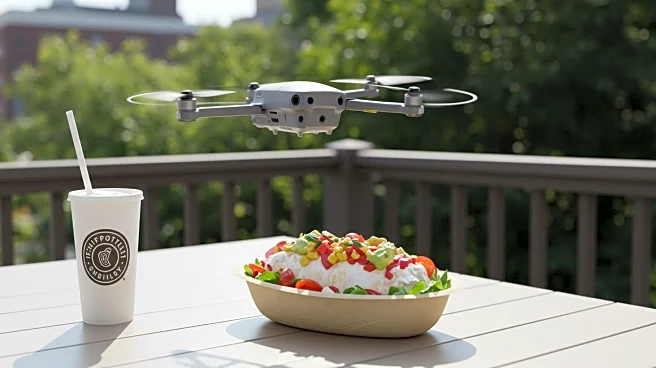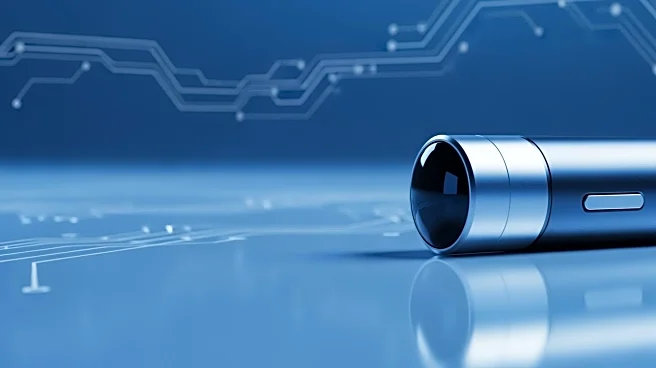What's Happening?
Chipotle has announced the launch of its new drone delivery service, 'Zipotle,' in collaboration with Zipline, an autonomous drone delivery company. This service is currently available to a select group of customers in Rowlette, Texas, a suburb of Dallas. The process involves customers placing orders through the Zipline app, which are then prepared by a local Chipotle restaurant. The drone delivers the order by hovering at approximately 300 feet and dropping it via a carrier. Chipotle has positioned this initiative as an environmentally friendly delivery option, aiming to provide quick and convenient access to their food in areas that are traditionally difficult to serve, such as backyards and public parks.
Why It's Important?
The introduction of drone delivery by Chipotle represents a significant shift in the food delivery industry, potentially setting a precedent for other companies to follow. This move could lead to increased efficiency and reduced carbon emissions associated with traditional delivery methods. For Chipotle, it aligns with their mission to cultivate a better world by integrating technology that supports environmental sustainability. The success of this pilot program in Texas could pave the way for broader implementation, impacting how food delivery services operate across the U.S. and potentially influencing public policy regarding drone usage and regulations.
What's Next?
If the Zipotle program proves successful in Rowlette, Texas, Chipotle may consider expanding the service to other regions. This could involve scaling up operations and addressing logistical challenges associated with drone delivery in urban and rural areas. Stakeholders, including local governments and regulatory bodies, may need to evaluate and adapt policies to accommodate increased drone activity. Additionally, consumer feedback will likely play a crucial role in shaping the future of this delivery model, influencing potential adjustments and improvements.
Beyond the Headlines
The use of drones for food delivery raises questions about privacy and airspace regulation, as increased drone activity could lead to concerns over surveillance and noise pollution. Furthermore, the integration of drones into everyday life may prompt discussions on the ethical implications of automation and its impact on traditional delivery jobs. As technology continues to evolve, society may need to address these issues to balance innovation with community well-being.









